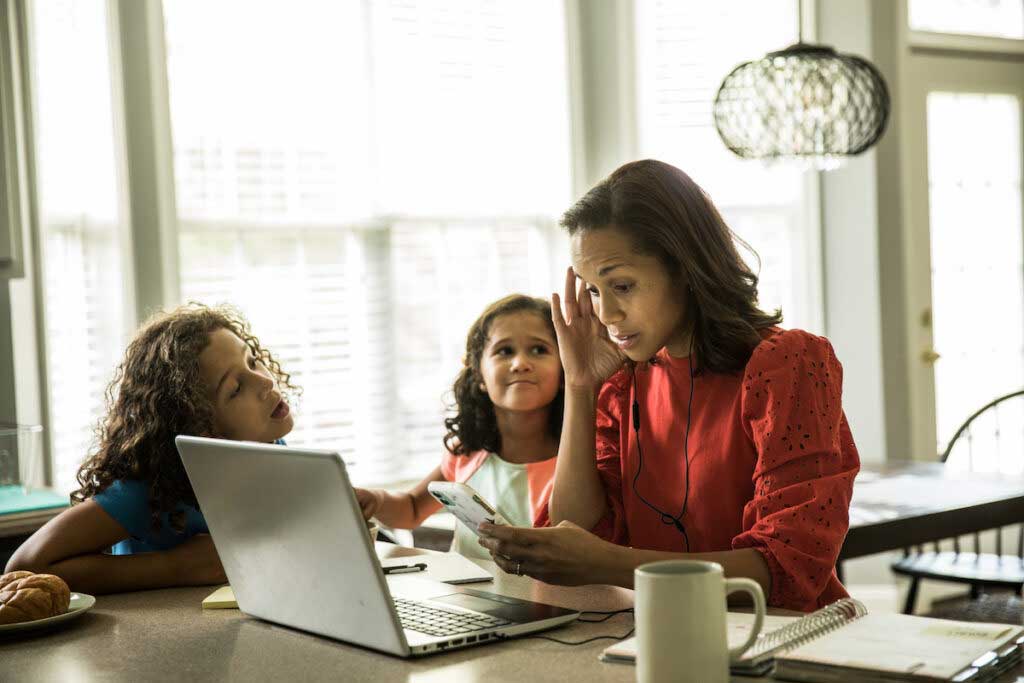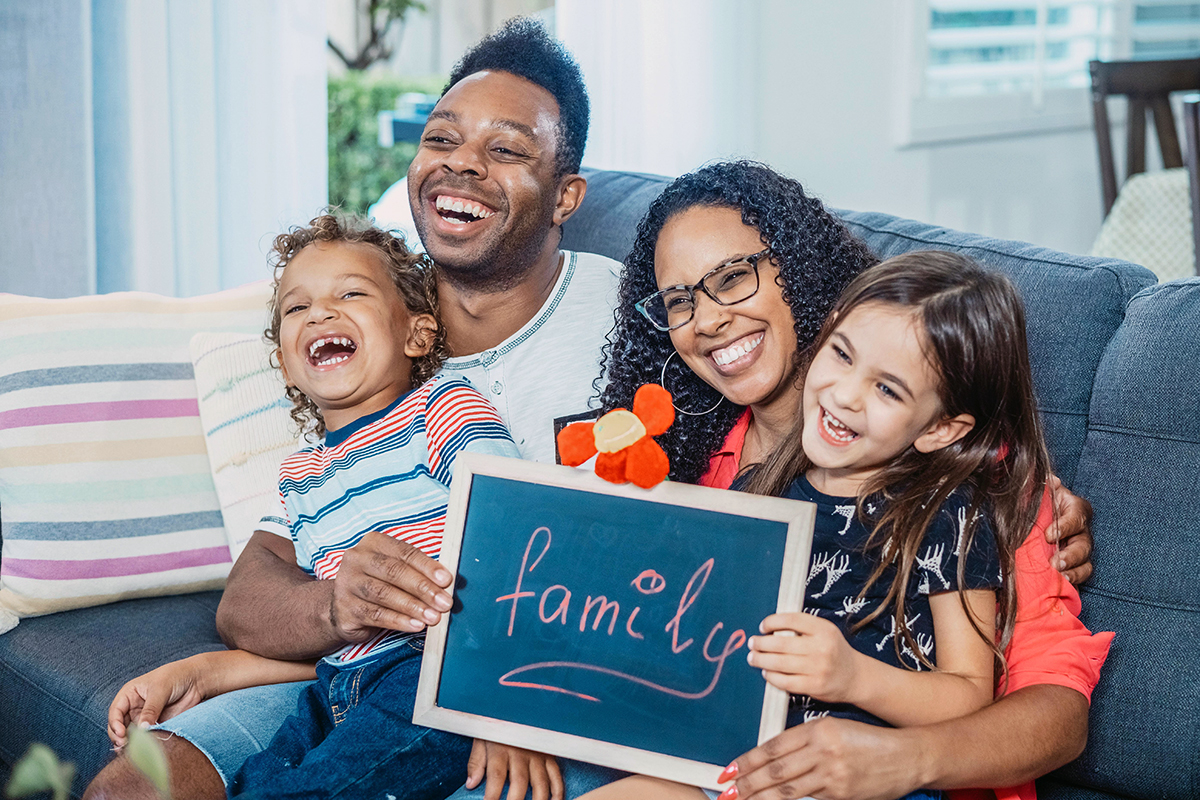I get a lot of hard questions with no good answer, but among the very hardest are questions from parents contemplating divorce. My marriage isn’t working: how do you know when it’s time to end things? Is it better to stay for the kids? If we do split up, how do we manage the kids? If we do not split up, how do we make it work — can we ever split?
These are the kinds of questions I was most eager to address on a podcast, with more breathing room and in conversation with someone who brings a different expertise. There’s a bit of data here, but it’s hard to learn much from it given all the differences across families. This is a case where, at minimum, we need to combine the data with the day-to-day experience of working with families and thinking deeply about how these issues play out.
As usual with hard things (sex, death), I turned to Miranda Featherstone, a social worker, writer, and close friend. Today’s episode is not to be missed — a long talk about divorce and kids, and then something a little lighter at the end about how we all like the smell of our own baby’s poop. Listen below, and subscribe in your favorite podcast app so you don’t miss the next one.
Full transcript
This transcript was automatically generated and may contain small errors.
I’ve talked before in my newsletters and my books about the idea of there being no secret option C. Sometimes when we face a hard choice, option A doesn’t seem good, option B also doesn’t seem good, and we wait around in the hopes that secret option C will arrive. But often there’s no secret option C, and you have to move forward with A or B. Divorce can feel like the ultimate example of this. Staying may feel impossible. Leaving may also feel impossible, and yet you have to choose one of them.
When I get questions like this, really hard, complicated, nuanced questions with no good answers, the person I always want to talk about them with is Miranda Featherstone. Miranda is a social worker and a writer, and she’s one of the most thoughtful people that I know. I asked her to come on the podcast here and talk with me about divorce. Talk about how to think about the impacts on kids, what the data says, and how she talks about this in her practice. There are no answers here, but maybe in the course of our talk we can make these two impossible feeling options feel a little less impossible.
After the break, my conversation with Miranda Featherstone.
And at the end of this newsletter, and in the podcast, we’re going to put some resources if that’s the circumstance. And the second is that, almost everything we’re going to talk about today is very personal and specific. And so while we’re going to talk in general about some of the considerations that might come up, there are no answers here about, “Yes, you should leave” or “Yes, you should stay.” And that’s not something that we could answer for any individual other than ourselves. And the final thing I want to say is that you and I are both married and so we don’t come at this with personal divorce experience.
Their meta-analysis showed that children from divorced families scored significantly lower on a variety of outcomes including academic achievement, conduct, psychological adjustment, self-concept and social competence.” The paper goes on to say that it also has long-term impacts on children’s health. Now these data are flawed in some important ways. One is that there’s a basic correlation versus causality issue. Families with divorced parents tend to be different.
There’s also this important conceptual issue that I think we can talk about, which is that these studies are comparing children of divorced parents to children of married parents, at least some of whom are probably happy. That actually isn’t really the question that people are asking if they’re contemplating divorce. So I think the place to start with this is assuming that your marriage is unhappy, is it better to split up or stay together for the kids?
And that’s a place where you don’t really have very good data. So that’s a very long windup. And I want to start with asking you this question. So let’s say somebody comes to you in your counseling social work role, they say that they’re considering divorce, they’re asking whether it’s bad for the kids, just what do you tell them?
All kids of all ages will be impacted in different ways. But I think it’s also really important to think about what stage of parenting are you in right now. Is parenting likely to get easier? I think we know from data and from people’s reported experience that having young children is really tough. It’s really tough on a marriage, often there’s an adjustment period.
And I think that also, it goes hand in hand, divorce is quite hard on young kids. It can be quite hard on lots of kids, but young kids in particular, they often lack an understanding of what’s happening if parents are divorcing and why it’s happening and they just sort of are there for the emotional fallout and that can be quite tough.
And if it is in negative ways, that’s something to take seriously I think. It’s not just about, there’s a lot of sort of conversation around divorce about, “Oh, adults [inaudible 00:07:05] their own happiness over kids.” And that’s obviously very reductive because kids respond to the moods and the happiness levels of their grownups and the people caring for them. So I think that’s something to take really seriously and to think about.
I think sort of with the counseling question, is there a plausible path forward for adult happiness within the current household arrangement or does counseling feel like it would be a box to be ticked? And sometimes it’s hard to know. Good therapists, good couples therapists can be really, really wonderful and can really help people resolve problems that feel intractable. They’re skilled professionals, many of them, and they’ve seen a lot and things that feel like insurmountable problems are often things that they can actually help folks address.
And so therapy comes up in that. But I think the other piece of this that we’ve talked a little bit about is are there things that are going on that are going to lead to these same kinds of issues in any relationship that one has? There’s sort of the grass is greener on the other side piece of this, which even if you’re going to split up, maybe is worth understanding before you sort of make that decision to try to move on.
Not to say that it won’t be and that there are some folks that are just really ill-matched, but I think it is a really responsible action if you’re thinking about doing this for your own happiness and there are kids involved and you want to sort of think about their long-term stability and happiness and what their household will look like. And what your own happiness might look like too is to really take stock of what has caused the problems in the current relationship. And most often it’s two-sided and having a really solid understanding of the things that you brought to this relationship that perhaps contributed to some of its challenges is I think really important sort of work to do.
And for me, I think the frame I would give on this is I talk a lot about deliberate decision making and the idea of framing a question and then kind of evaluating the options really clearly. And so we have kind of option, “We stay in the household together in this marriage that’s not really working” versus “We live in two different households.”
And within those you could ask kind of what’s the best possible setup and is the best possible divorce setup for your kids better than the achievable setup inside the household? Sort of taking into account that if you’re living together you’ll be unhappy. If you’re living apart, maybe there will be unhappiness. And so thinking about that, what are the things that I want to have in my mind thinking about how my kids are going to interact with or feel about having these sort of multiple lives? And how can I make that as good as possible-
These two people have decided to part ways for presumably lots of good reasons. There are a number of differences between these two grownups and the worlds kind of pull apart, right? In a marriage and a marriage that’s working, adults are sort of pulling each other closer towards the middle. Right? One person might be very strict about dessert or bedtime and another, the other parent might kind of soften that a little bit or be a counter to that. And there’s a sort of happy-ish, in many cases, medium that’s achieved.
Each parent can kind of soften the other, pull them toward each other. There’s this countering towards inclinations, but that falls apart when there’s a separation. People sort of go flying in opposite directions. So it might be around any number of things. The things that I see most frequently are attitudes towards food or sweets or healthy, quote unquote “Healthy or unhealthy” food or schedules or rules about TV and video games. And so kids wind up living in these households that have really radically different approaches to the day-to-day minutiae of a kid’s life, like bedtime or whatever.
That’s a pretty significant thing for a kid and that can be really, really hard for kids to sort of code switch between these two really different household cultures. Keep in mind, most kids are also going to school, so that’s another culture that they’re having to kind of become fluent in. And it can be really, really tricky for them to sort of bridge that gap by themselves. Yeah. I think that’s something that folks don’t always anticipate, but it’s something that I see as often pretty tricky for kids to navigate.
But one of the things that adult children of divorce report as being really hard is a sense that they alone, or maybe they and their sibling are the person who knows the ins and outs of their life, that they were sort of tasked with navigating two worlds and those worlds were unknown by the adults in their life, right? That their mother had no idea of what their dad’s world consisted of.
She didn’t speak that language, she wasn’t familiar with its norms. And so they’re sort of like these lone sailors on this sea moving from one place to another. And that’s hard. That’s a very difficult burden for a kid to carry. Kids want to be seen, they want to be known and understood and have a sense that their adults are looking out for them and sort of are familiar with what their challenges are. Even teenagers want that, even if they pretend otherwise.
So one question I think people could ask is, “Should I stay? If I’m going to stay, what is the atmosphere? Are we fighting a lot? Is it that I don’t feel fulfilled with this person and this relationship isn’t working but I like them okay? We’re not fighting a lot, we’re just not really in love anymore? Or is it that actively in the household the kids are noticing that things are not going well, in which case maybe that’s not something we want our kids to be around because what are we teaching our kids?”
So I think it’s worth naming what kids have experienced and giving them language for what they have seen of the partnership. And that I think is almost always worthwhile, right? That mommy and I make each other really angry. We have a hard time using kind words with each other, and that’s part of why this is happening, right? And sort of naming what they have witnessed. I don’t think you can really ever go wrong there because they’ll be trying to make sense of what they’ve witnessed in their own often inadequate way.
That would not be helpful under any circumstances. I think if you have teenagers and along the way you sometimes want to sort of share with them some of the things perhaps that you brought to a relationship that made it hard for it to work in sort of small doses and in developmentally appropriate doses, you’re not sharing inappropriate things that will make them really uncomfortable.
You’re not asking them to sort of care for you or respond to you in a way that is where they would feel worried about you or feel like they needed to take care of you in some way. I think that that can be honest and valuable and fine with older children. It’s certainly a conversation to have in thoughtful ways with adult children. But I would be pretty careful about what’s shared that isn’t what they’ve sort directly seen.
We’re showing them what grief is and this is a little bit of a different experience because it’s an adult decision that has this huge impact on their life. So not that it’s not okay to say, “Oh yeah, I’m crying just because I’m feeling a little stressed about moving out of the house” or whatever it is. But you also, I think it is because their life is being disrupted in this very particular way, as much as possible sort of being a little more in control and a little more just attuned to what this experience is for them, if that makes sense.
I think what we do have very clearly is there’s a value of consistency, which goes back to what we were saying, that in every area of parenting, discipline, kids like to know what to expect. They like circumstances and consequences to be predictable. That just really works much better for most children, which is going to go back to this sort of making things similar in all environments. But beyond that, you think about what could you do to make the divorce the best.
I think it’s great to give kids agency when possible. Anything like a divorce is something that kids, they don’t have control. They will experience it as a removal of control or… and that is unsettling. So giving them agency as much as possible within reason, giving them choices that they can make about how things shake out, how a new bedroom is decorated, or if it’s possible, do they get picked up by a parent at school or from the other parent’s house, things like that where they could maybe have some say.
I think planning for regression and acting out is important, but I also think it’s really important to plan for the fact that divorce and separation are often a really big deal from an attachment perspective. It’s really, really hard often for a kid to be separated from a parent, often like the primary caregiver parent, yes, but any parent either parent. It can often be really tough for them to be separated and they will experience that as grief and loss and longing.
And that is something that it’s really important I think for parents to be open to tolerating those feelings of loss and sadness and being there for the kid with those feelings and to saying, “Yes, you’re not going to see dad until Wednesday. I hear you, that you really miss him. What can we do? Can we write him a letter? Can we record him a video? Would it be helpful to have a shirt of dad’s at mom’s house that you sleep with, like a stuffy?” Sort of brainstorming with them.
Not that you’re necessarily going to land on a solution that solves the problem for the kid. The problem is not exactly a solvable one, but that they see you as someone who is sort of open to helping them through this challenge and can tolerate their feelings. And those can be really hard feelings to tolerate. If you are experiencing relief at this separation or grief, your own grief.
Also possible to have your kids sort of be like, “I miss Dad.” That can be incredibly triggering. And it can be very hard to rise to that occasion and be like, “Wow, that sounds so tough. I’m so sorry. What can we do?” That is not necessarily going to be your instinct, but I think it’s really, really valuable to push through even if it feels tough and to sort of meet them.
And I think one thing that is just really, really challenging is the divorce where we hate each other, where for whatever reason this has turned into a really toxic interaction both before and post-divorce where parents are not talking, where they’re only talking through lawyers, where they absolutely would never agree on how the household should work because they’re almost purposely disagreeing because they want to hurt the other person.
And I do think that’s not every divorce, that is hopefully not the divorce of the people who are wondering about this and listening here. And I don’t think there’s really an answer here. It’s for many people that feels like a totally intractable situation in which we cannot possibly make this okay because it is just so, so toxic.
And do your best to really just be there for them. So I mean, and I think the thing that I think it’s really important for people to know is that divorce can absolutely be a really hard thing for a kid, but many, many kids face really hard things of all different kinds, and that’s okay. That’s not something that we should be trying to avoid at all costs. What I think we need to think about is how do you prioritize their experience of this big life change?
And just showing up for them emotionally is so important. What we know about kids who are resilient, who sort of experience a setback and come out of it is that they have an adult who they love and trust and who they feel really sees them and gets them and loves them unconditionally.
Not someone who doesn’t make any mistakes, not someone who doesn’t raise their voice ever, but just a person who really cares about their experience, believes their experience, and is sort of in it with them. And I think that doing that for your kids, regardless of whether the divorce is a relief for you, whether it’s a huge loss and a source of grief, it may be many or any of those things, but being there with them for what it means to them is really, really significant. That goes quite a long way.
Why do I like the smell of my kids’ poop? The first thing I want to say is that you’re not alone. There’s actually data that suggests that moms can recognize and in a relative sense, enjoy the smell of their own baby’s poops. The way that researchers figure this out is they bring moms in, they have a bunch of poopy diapers, and they have the moms smell them. It turns out moms like the smell of their own baby’s diaper more than they like the smell of other baby’s diapers. This is a great research project.
An interesting follow-on question would be why. I think part of the reason is that your poop probably smells kind of like your baby’s poop, and we know that people prefer the smell of their own poop to the smell of other people’s poops. Now, why does your baby’s poop smell like your poop when you’re eating very different things? That is probably in part because of the microbiome, the smell of your poop is influenced by the gut bacteria you have, and that is shared with your baby for a bunch of reasons, genetics, environment, things getting passed on during birth.
In conclusion, you like the smell of your own poop, and as a result, you like the smell of your baby’s poop, and that’s why we keep being parents, even though it’s primarily poop oriented.
ParentData is produced by Tamar Avishai, with support from the ParentData team and PRX. Also, special thanks to our house violinist, my daughter Penelope.
Community Guidelines


















Log in